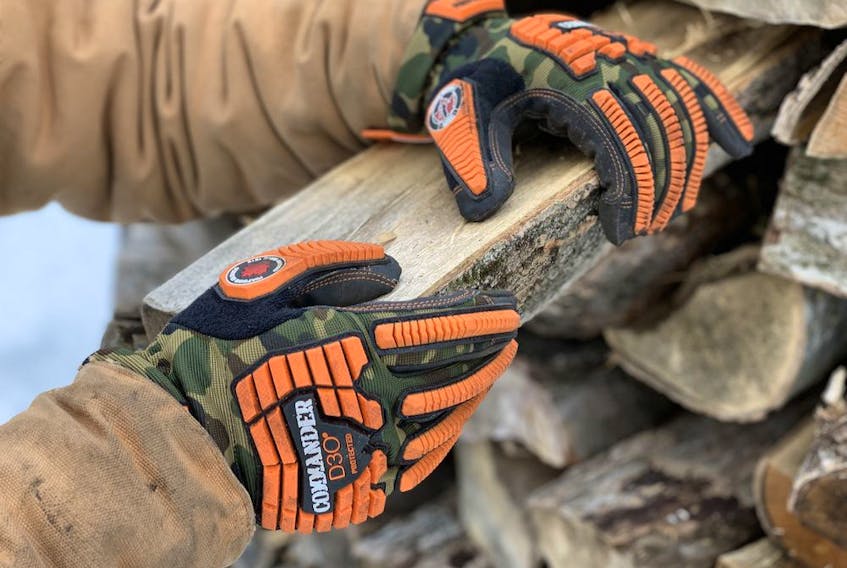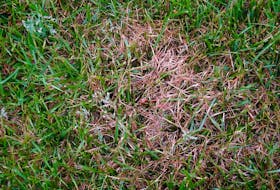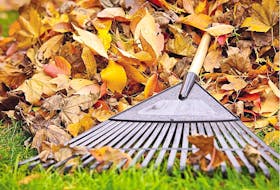A year ago this spring, I discovered a Canadian work glove manufacturer that I’m surprised I hadn’t found before.
I use work gloves almost every day, but never thought much about glove design until I came across a B.C. company called Watson Gloves. They celebrated their 100th anniversary in 2018, and since then I’ve been impressed by the variety of gloves they offer – more than 1,000 different styles in all.
I used to think work gloves were only about choosing lined or unlined leather options, because that’s all I typically found on hardware store shelves, but there’s a lot more to leading edge glove innovation than this. A Watson glove called “Commander” is a case in point.
Besides the usual sort of protection against cuts and abrasion, another reason you might wear work gloves is to protect the back of your hands and fingers from bumping into things while you work. This back-of-hand protection is something that‘s often overlooked but important, and cutting firewood is a classic example for me.
Besides the risk of cuts and wear on palms and fingers, working with firewood also invites the danger of bumping into sharp parts of the wood splitter or angled corners of wood piles. Bumping into things with your hands when you’re holding heavy items is more damaging because the weight behind the movement makes the injuries worse. Back-of-hand protection is why the Commander glove caught my eye earlier this year.
While the palms and fingers are covered in fairly thin material that make it easy to grip, the backs of hands, fingers and cuffs are covered in segmented, 3/16-inch-thick springy rubber bumpers to protect against hard, sharp and dangerous edges. The springy segments are small enough to allow easy flexibility, but beefy enough to actually deliver meaningful protection. This design works very well. These gloves are like little bumper cars for your hands. Why have I never seen this sort of flexible bump protection before?
Watson Gloves is currently partnering with a privately funded organization called Wounded Warriors Canada (woundedwarriors.ca) to help honour and support ill and injured armed forces members, veterans, first responders and their families. WWC provides therapy to individuals and couples to help people heal from trauma, including a PSTD service dog program. For every pair of Commander gloves sold, Watson donates 50 cents to the Wounded Warrior cause to “honour the fallen, help the living”.
Biodegradable gloves are another innovation Watson is working to deliver. By definition, work gloves are disposable items, so the responsible thing to do is make the “post use” phase of gloves environmentally friendly. The faster they decompose after their working life is over the better.
Bamboo fiber makes this happen in the world of wear-preventing gloves, but biodegradability goes beyond this.
More and more home workshoppers and DIYers are using rubber-type gloves for finishing wood, working on vehicles and handling dangerous materials. Wider use of rubber gloves is a great thing because it’s a healthier and cleaner way to work, but every time I peel off a set of gloves and throw them away it bugs me. Sure, my hands and health are better for the rubber gloves, but some landfill somewhere isn’t.
Watson’s Green Monkey gloves work just like regular rubber-type gloves, but they’re also made to biodegrade in 10 years of typical landfill conditions. There’s even an official standard for this kind of biodegradability. The ASTM D5526 standard measures the ability of plastic-type materials to decompose under landfill conditions and Green Monkey meets it.
Work gloves might not be something you think about much, but somehow I feel pretty good that Canadians are at the leading edge of making the lives of us glove users better.
Steve Maxwell wears out lots of work gloves each year. See how he does it by visiting his modern homestead online at BaileyLineRoad.com.
Copyright Postmedia Network Inc., 2019









